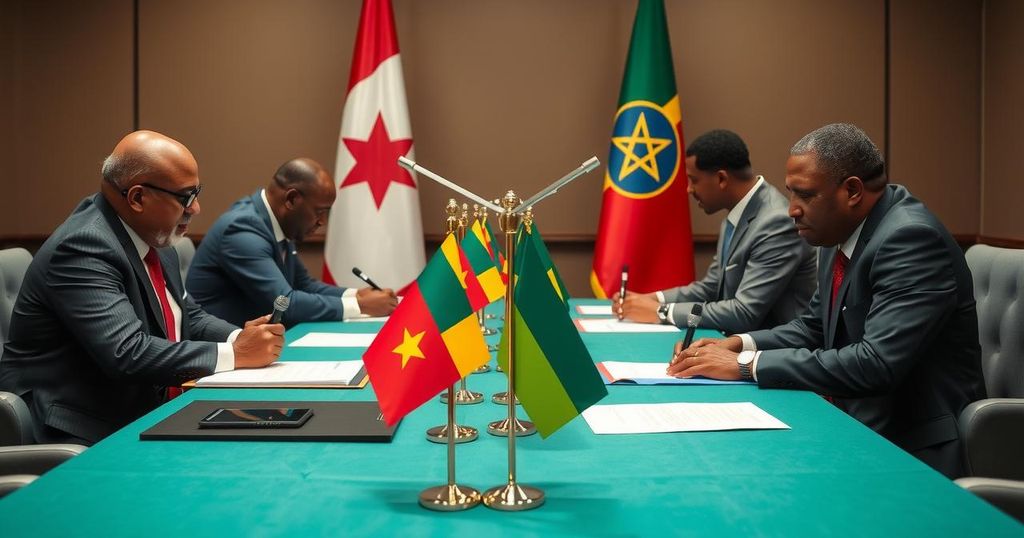The African Union urges Somalia and Ethiopia to implement a recent agreement aimed at resolving maritime access disputes promptly. Following Turkish-brokered talks, leaders from both countries have expressed their desire to collaborate, despite ongoing tensions related to Somaliland’s unique status. This development signals a potential for improved relations but requires careful management of existing complexities.
The African Union recently called for the swift implementation of an agreement between Somalia and Ethiopia, which seeks to mitigate tensions over Ethiopia’s access to the sea. This appeal follows a contentious deal struck in January 2024 between Ethiopia and Somaliland, a breakaway region of Somalia, which Somalia contends infringes upon its sovereignty. On February 17, 2024, after a successful round of talks in Ankara brokered by Turkey, Somali President Hassan Sheikh Mohamud and Ethiopian Prime Minister Abiy Ahmed affirmed their commitment to cooperate while setting the stage for technical discussions concerning Ethiopia’s maritime access.
Ethiopia has long sought a coastal outlet since losing its access to the sea in 1993 following Eritrea’s independence. The latest accord emphasizes the need for both nations to address their differences and work towards common prosperity under the recognition of Somalia’s sovereignty. The African Union Commission Chairman acknowledged the significance of the negotiations while stressing the urgency of implementing the resultant measures. Furthermore, regional bodies like IGAD have lauded the agreement as a pivotal step towards peaceful bilateral relations. However, complexities remain, especially pertaining to the prior understanding between Ethiopia and Somaliland, suggesting that while progress appears to be made, challenges are still to be navigated in the diplomatic landscape of East Africa.
The relationship between Somalia and Ethiopia has been historically strained, particularly exacerbated by Ethiopia’s attempts to establish a port in the self-declared independent region of Somaliland. This situation has raised concerns about sovereignty and potential conflict in the region. As Ethiopia is landlocked, its maritime aspirations have become a point of contention. The African Union’s push for swift implementation of agreements is part of broader efforts to stabilize the area and foster cooperation between neighboring countries. The recent diplomatic negotiations have introduced the prospect of improved relations but also require delicate handling of existing grievances, especially regarding Somaliland’s claim to independence, which Somalia does not recognize.
In summary, the African Union’s call for expedited implementation of the recent Somalia-Ethiopia agreement reflects a critical step towards regional stability. The negotiations conducted in Ankara have reinvigorated hopes for cooperation amid longstanding disputes over maritime access. Nevertheless, the shadow of Somaliland’s status looms large, necessitating cautious navigation of diplomatic relations to avoid further escalation of tensions. Thus, while the framework for peace has been established, the path forward demands continued commitment from both nations to resolve their differences amicably.
Original Source: www.seychellesnewsagency.com






